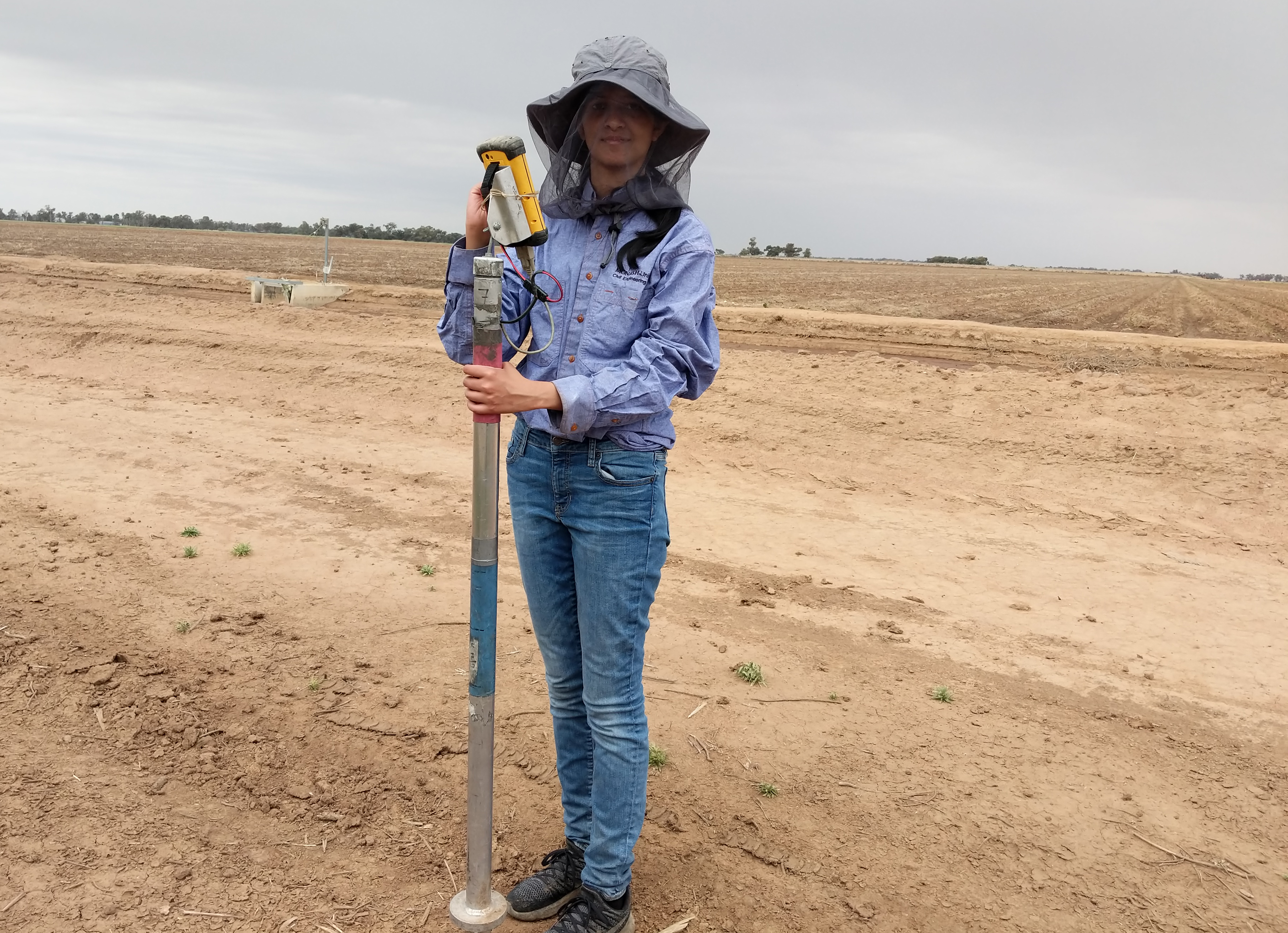
Tasnuva Rouf (pictured) and Jeremy Johnston spent a month collecting data on soil moisture in a rural Southwestern Australia. Photo provided.
Two PhD students in the Sid and Reva Dewberry Department of Civil, Environmental, and Infrastructure Engineering ventured far away from their Fairfax classrooms and labs when they made a volunteer trip to Australia last fall.
Tasnuva Rouf and Jeremy Johnston spent a month collecting data on soil moisture in a rural Southwestern Australia town called Yanco. They chose the spot because of its remote location and agricultural activity. The data will help test the viability of new soil-moisture measuring technology that uses radiometry and doesn’t require on-ground contact to measure the soil.
The students spent days out in the fields measuring the soil with a simple tool, and later, this data will be compared to measurements taken from the new device. “While they’re flying a plane and collecting information over a large area, we are taking measurements on the ground to validate it and see if it is correct,” says Johnston.
They were hosted by Monash University in Melbourne, Australia, where professor Jeff Walker is leading this data collection. Soil moisture is important to many aspects of life because it affects agricultural success.
“Essentially, it is associated to crop health. Agriculture managers want to know this information so they can predict yields of their crops and know when to irrigate,” says Johnston “We can also create long-term records so they know when it may flood or when there will be a drought.”
Johnston and Rouf walked about ten miles each day to collect these samples, which is much different than their typical lab work.
For Rouf, this was her first experience with fieldwork, and she says while it proved to be physically difficult, she would do it again. “We made a lot of connections to people from all over the world, so now if we have questions about our own research, we can reach out to them.”
Students from Vietnam, France, China, and other countries also volunteered for this project. “It’s crazy to see how similar you really are to other students from other places in research and what we’re studying. We’re all students” says Johnston.
